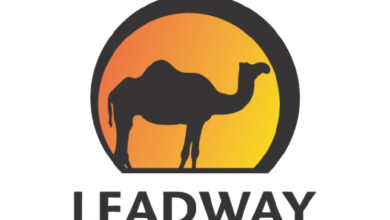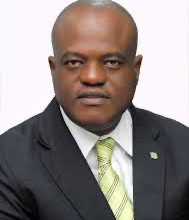Leadway Invests $5m In InfraCredit For Infrastructure Development

Mr. Tunde Hassan-Odukale, MD/CEO, Leadway Assurance
Leading insurance underwriters in Nigeria, Leadway Assurance Company Limited has invested five million United States Dollars (US$5,000,000) in InfraCredit to bridge the infrastructure gap and build a resilient Nigeria.
With this development, Leadway is the first private institutional investor member of the shareholder group in InfraCredit.
Speaking on the investment, the Managing Director/CEO, Leadway Assurance, Mr. Tunde Hassan-Odukale said, “InfraCredit is bridging a significant infrastructure gap in Nigeria through the mobilization of private capital. Through the realization of the critical role an enabling infrastructure plays in the development of the social-economic conditions in our country, we see a strong alignment in Leadway and InfraCredit’s mission of supporting our clients in building a more resilient Nigeria.
“InfraCredit’s vision, strong governance and execution capability reinforced our decision to support its quest to unlock long term local currency capital for infrastructure development in Nigeria through this equity participation. We are excited at the development impact of this investment and the positive trajectory of InfraCredit’s operations and strong outlook. We look forward to working with InfraCredit to contribute to Nigeria’s infrastructure development and to fulfil our ESG-inclined investment principles.”
Pursuant to this new equity investment, InfraCredit’s total capital base (paid-in and callable capital) will increase to US$183 million (c. NGN75.3 billion), translating to an aggregate guarantee issuing capacity of up to NGN376.4 billion (c. US$915 million) based on its current maximum capital leverage ratio of up to 5x allowable by its rating agencies.
As the economy recovers from the challenges occasioned by the COVID-19 pandemic, InfraCredit would continue to deploy innovative credit enhancement solutions in mobilizing private sector financing for infrastructure projects in key sectors of the economy.
In welcoming Leadway as a new shareholder of InfraCredit, Uche Orji, Chairman, Board of Directors and MD/CEO of the Nigeria Sovereign Investment Authority noted; “this investment aligns with our vision of creating an effective public-private-partnership, relevant for crowding-in private sector capital towards infrastructure financing in a sustainable way. It’s an inflexion point and exciting milestone in diversifying the capital structure of InfraCredit, as we look forward to deepening private sector participation in the ownership structure.”
Commenting on the new equity investment, Chinua Azubike, the Chief Executive Officer, InfraCredit noted: “Leadway’s equity investment further strengthens our core capital and guarantee capacity, as we continue to execute on our mission of unlocking private capital for infrastructure development in a sustainable manner. More so, this equity investment from Leadway aligns with our strategic objective of diversifying the shareholder base towards our envisioned capital structure, with requisite participation from leading private institutional investors.
We welcome Leadway as a shareholder, with optimism that its equity participation in InfraCredit would consolidate our partnership towards enhancing infrastructure financing and accelerating economic growth.”
InfraCredit is a ‘AAA’ rated specialized infrastructure credit guarantee institution.
Meanwhile, InfraCredit in its recent report entitled “Unlocking the Potential of the Nigerian Insurance Sector: Alternative Assets to Drive Insurance Penetration,” stated that Nigeria’s insurance sector needs an alternative asset class that can match the expected contractual liabilities to deepen the insurance penetration to an optimum level.
It stated that lack of an alternative securities market “is an existential threat to the sector.”
What this means, according to the report, is that without a deliberate and strategic policy towards investing in alternative assets, the industry may not achieve increased penetration by writing more policies and creating more contractual liabilities, adding that insurance penetration potential may be illusory beyond certain levels irrespective of the underwriting opportunity and may never reach the levels of peer countries.
The implications, the report stated, “is that the current asset structure of the Nigeria insurance sector is heavily weighted in Federal Government of Nigeria bonds – FGN bonds (average 95%).
“Given the nature of FGN expenditure, which is largely recurrent due to revenue constraints, it implies that the investment will have less impact in new projects and ultimately new policyholders’ premium. This reveals a constraint on premium generation and reinforces the fact that the Nigerian Insurance Sector growth is limited to the assets it invest in.
“In other words, the industry can only create liabilities to the asset composition of its investment portfolio; therefore, the potentials of Nigeria’s insurance market cannot be tapped unless a sizeable alternative securities market exists like other developed insurance markets.”
In proffering solution. the report said, “An alternative asset exists with institutions like InfraCredit established by the Nigerian Sovereign Investment Authority and international DFIs to help solve the asset allocation problem by creating “AAA” long-term alternative instruments to deepen the market and support growth.”





